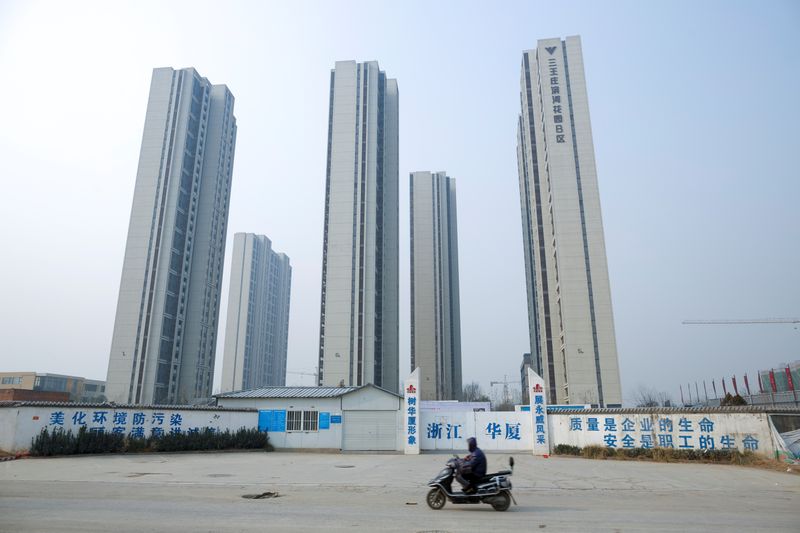This post was originally published on this site
https://i-invdn-com.akamaized.net/trkd-images/LYNXMPEFBC0JB_L.jpg
BEIJING (Reuters) – Two Chinese cities loosened rules this week to make it easier for individuals to purchase houses or obtain residency, effectively expanding a pool of potential home buyers to prop up moribund residential property markets.
China has clamped down on property speculation since 2016 to contain a market that begun to bubble. But policymakers became increasingly mindful not to sink the market entirely – a pillar for the broader economy – at a time when an economic downturn was underway.
A district in Nanjing, capital of eastern Jiangsu province, said on Friday that among individuals with high education qualifications, diploma holders from vocational institutes are now allowed to buy homes in that area. Previously, only degree holders were eligible.
Separately,Zhengzhou, capital of central Henan province, has introduced a new policy allowing individuals to apply for a residency permit after renting a home for a year, the government-backed newspaper Dahe reported on Thursday. Previously, long-term renters had no such option.
But critics say such relaxation could undermine the central government’s efforts to control property speculation, artificially propping up prices.
Chinese top leaders on Thursday reiterated that “homes are for living, not for speculation”.
“Due to the differences in population size and structures, land resource, housing supply and demand in different places, property policies should be city-based, and can also make appropriate adjustments depending on the effect,” state-run Economic Daily said in a commentary on Friday.
“But any housing policy should be based on ‘homes are for living, not for speculation’, not the other way around,” it warned.
On Wednesday, a city in Jiangsu province abruptly reversed a decision to remove a ban for property resales imposed more than two years ago. The removal of the ban – which lasted for just a day – briefly fanned speculation that more cities could follow suit.
Such policy reversals point to the pressure on local governments to shore up slowing real estate – critical to local government finances – while not appearing to be running counter to the central government’s war on speculative buying.
China’s house prices are expected to grow 3.1% next year, the lowest over a calendar year since 2015, a Reuters poll showed.
Fusion Media or anyone involved with Fusion Media will not accept any liability for loss or damage as a result of reliance on the information including data, quotes, charts and buy/sell signals contained within this website. Please be fully informed regarding the risks and costs associated with trading the financial markets, it is one of the riskiest investment forms possible.

